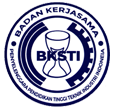The Importance of Halal Labeling in Consumer Food and Beverage Purchasing Decisions Based on Demographic Factors: A Case Study of Minimarket Consumers in Palembang City
Abstract
Keywords
Full Text:
PDFReferences
Aslan, H. (2023). The influence of halal awareness, halal certificate, subjective norms, perceived behavioral control, attitude and trust on purchase intention of culinary products among Muslim costumers in Turkey. International Journal of Gastronomy and Food Science, 32(June), 100726. https://doi.org/10.1016/j.ijgfs.2023.100726
Astuti, C. C. (2021). PLS-SEM Analysis to Know Factors Affecting The Interest of Buying Halal Food in Muslim Students. Jurnal Varian, 4(2), 141–152. https://doi.org/10.30812/varian.v4i2.1141
Azam, M. S. E., & Abdullah, M. A. (2020). Global Halal Industry: Realities and Opportunities. International Journal of Islamic Business Ethics, 5(1), 47–59. https://doi.org/10.30659/ijibe.5.1.47-59
Aziz, N. A., Abdullah, S. M., Nasrun, M., Roslan, M. A., & Awang @ Ali, M. N. (2022). Halal Labelling for the Malaysian Pharmaceutical Products: A Legal Review. International Journal of Academic Research in Business and Social Sciences, 12(5), 1759–1776. https://doi.org/10.6007/ijarbss/v12-i5/13210
Destiana, R., Rawi, & Muthiarsih, T. (2024). Revisiting Neoliberalism in Indonesian Minimarket Marketing Strategies and Financial Reporting: How Do They Perform? Scientechno: Journal of Science and Technology, 3(1), 132–144.
Dewi, C. (2024, March 10). 10 Negara dengan umat muslim terbanyak di dunia, RI no berapa? CNBC Indonesia, 1–5. https://www.cnbcindonesia.com/research/20240310150636-128-521083/10-negara-dengan-umat-muslim-terbanyak-di-dunia-ri-nomor-berapa#:~:text=Melansir dari data World Population.
Dwicahyo, K. (2023). Analisis perbandingan penjualan produk berlabel halal dan tidak pada e-commerce di negara mayoritas dan minoritas muslim. Universitas Islam Indonesia.
Esa, I., Mas’ud, F., & Gunanto, E. Y. A. (2021). Pengaruh Faktor Kesadaran Halal, Harga, Pelayanan dan Religiusitas Terhadap Keputusan Pembelian Orichick di Kota Semarang. Ad-Deenar: Jurnal Ekonomi dan Bisnis Islam, 5(2), 283–298. https://doi.org/10.30868/ad.v5i02.1316
Fadzil, N. S., & Sawari, S. S. M. (2021). Halal Food in Tourism: Exploring the Factors that Influence Halal Food Selection among Travelers. Journal of Tourism Management Research, 8(1), 1–10. https://doi.org/10.18488/journal.31.2021.81.1.10
Farisha, M., Hartoyo, & Safari, A. (2022). Does Covid-19 Pandemic Change the Consumer Purchase Behavior Towards Cosmetic Products? Journal of Consumer Sciences, 7(1), 1–19. https://doi.org/10.29244/jcs.7.1.1-19
Fauzi, M., Mahmudin, & Haq, F. F. (2023). Halal assurance climate creation in processing products for micro waqf bank customers. Journal of Enterprise and Development (JED), 5(1), 1–17. https://doi.org/10.20414/jed.v5i1s.6915
Hehanussa, U. K. (2022). Analysis of Non-Halal Drug Use in the Perspective of Maqashid Syariah. Jurnal Ilmiah Ekonomi Islam, 8(1), 437–443. https://doi.org/10.29040/jiei.v8i1.4602
Hidayati, N., Sunaryo, H., Pradesa, H. A., & Slamet, A. R. (2020). Exploring Perception of Halal Product Among Moslem Consumer: A Preliminary Study. International Journal of Academic Research in Business and Social Sciences, 10(8), 178–187. https://doi.org/10.6007/ijarbss/v10-i8/7523
Huda, N., Hulmansyah, & Rini, N. (2018). Faktor Yang Mempengaruhi Perilaku Konsumsi Produk Halal Pada Kalangan Mahasiswa Muslim. EKUITAS (Jurnal Ekonomi Dan Keuangan), 2(2), 247–270. https://doi.org/10.24034/j25485024.y2018.v2.i2.3944
Ihsana, K., Hakim, R., & Sulistyono, S. W. (2021). Analisis Faktor-Faktor yang Mempengaruhi keputusan Pembelian Produk Makanan Berlabel Halal di Kalangan Masyarakat Kecamatan Syiah Kuala Banda Aceh. International Journal of Islamic Economics Development and Innovation (IJIEDI), 1(1), 20–30. http://ejournal.umm.ac.id/index.php/iiuuiuiu
Julianti, A., Rafidah, Alawiyah, R., Kanahaya, S. N., Martina, R., Husen, M., & Maulana, A. (2024). Young Generation’s Contribution in Building a Halal Industry Ecosystem in Indonesia. IJEC ( International Journal of Economics, 3(2), 1183–1189. https://doi.org/10.55299/ijec.v3i2.914
Kohilavani, Wan Abdullah, W. N., Yang, T. A., Sifat, S. A. din, & Zzaman, W. (2021). Development of Safe Halal Food Management System (SHFMS). Food Control, 127(September), 108137. https://doi.org/10.1016/j.foodcont.2021.108137
Kusumastuti, D. (2020). Minat Beli Produk Halal di Indonesia: Studi Pemetaan Sistematis. Mabsya: Jurnal Manajemen Bisnis Syariah, 2(2), 27–50. https://doi.org/10.24090/mabsya.v2i2.3929
Millatina, A. N., Hakimi, F., Budiantoro, R. A., & Arifandi, M. R. (2022). The Impact of Halal Label in Halal Food Buying Decisions. Journal of Islamic Economic Laws, 5(1), 159–176. https://doi.org/10.23917/jisel.v5i1.17139
Mohayidin, M. G., & Kamarulzaman, N. H. (2014). Consumers’ Preferences Toward Attributes of Manufactured Halal Food Products. Journal of International Food and Agribusiness Marketing, 26(2), 125–139. https://doi.org/10.1080/08974438.2012.755720
Muhamad, S. N. N., Bakar, N. A. A., Pazil, N. S. M., Shahidan, W. N. W., Nor, N. A. M., & Aziz, A. A. (2023). Factors Influencing the Selection of Halal Products Using Fuzzy Analytic Hierarchy Process (AHP). International Journal of Academic Research in Business and Social Sciences, 13(6), 1456–1468. https://doi.org/10.6007/ijarbss/v13-i6/17215
Muhamed, A. A., Halif, M. M., Bakar, M. Z. A., Hassan, M. F., & Rahim, N. N. A. (2022). Non-Conventional Strategic Supply Chain Management towards Halal Perspective. International Journal of Academic Research in Business and Social Sciences, 12(1), 1454–1477. https://doi.org/10.6007/ijarbss/v12-i1/12078
Mujahid, M. A., & Muljaningsih, S. (2023). Analisis pengaruh pendapatan, harga, dan tingkat konsumsi islami terhadap pembelian di minimarket al-khaibar masjid rois dahlan. Islamic Economics and Finance in Focus, 2(3), 500–512.
Muzdalifah, & Almuin, N. (2023). Analisis Penilaian Dan Minat Beli Produk Halal Pada Mahasiswa (Studi Pada Mahasiswa Universitas Indraprasta PGRI). Jurnal Review Pendidikan Dan Pengajaran (JRPP), 6(4), 2216–2222. http://journal.universitaspahlawan.ac.id/index.php/jrpp/article/view/21689
Noor, N. M., Azmi, N. A. N., Hanifah, N. A., & Zamarudin, Z. (2023). Navigating the Halal Food Ingredients Industry: Exploring the Present Landscape. Halalpshere, 3(2), 32–43. https://doi.org/10.31436/hs.v3i2.80
Nurhasanah, S., & Hariyani, H. F. (2017). Halal Purchase Intention on Processed Food. Tazkia Islamic Finance and Business Review, 11(2), 187–209. https://doi.org/10.30993/tifbr.v11i2.142
Nurhasanah, S., Munandar, J. M., & Syamsun, M. (2017). Faktor-Faktor yang Mempengaruhi Minat Beli Produk Makanan Olahan Halal pada Konsumen. Jurnal Manajemen Dan Organisasi, 8(3), 250–260. https://doi.org/10.29244/jmo.v8i3.22473
Nurhayati, T., & Hendar. (2020). Personal intrinsic religiosity and product knowledge on halal product purchase intention: Role of halal product awareness. Journal of Islamic Marketing, 11(3), 603–620. https://doi.org/10.1108/JIMA-11-2018-0220
Paramita, A., Ali, H., & Dwikoco, F. (2022). pengaruh labelisasi halal, kualitas produk, dan minat beli terhadap keputusan pembelian (literatute review manajemen pemasaran). Jurnal Manajemen Pendidikan Dan Ilmu Sosial, 3(2), 660–669.
Prakoso, M. A. (2021). Pengaruh citra toko dan kualitas pelayanan terhadap kepuasan pelanggan yang berimplikasi kepada loyalitas pelanggan toko indomaret di jakarta. Jurnal Manajemen Bisnis Dan Kewirausahaan, 5(5), 536–539.
Rahim, N. F., Shafii, Z., & Shahwan, S. (2013). Awareness and Perception of Muslim Consumers on Non-Food Halal Product. Journal of Social and Development Sciences, 4(10), 478–487. https://doi.org/10.22610/jsds.v4i10.787
Rizquina, A. Z. (2023). Perbandingan Penjualan Produk Halal Labeled Dan Non-Labeled Pada E-Commerce Tokopedia Indonesia. Universitas Islam Indonesia.
Salim, A., Yusta, R. N., & Purnamasari, A. (2022). Pengaruh Labelisasi Halal dan Promosi terhadap Keputusan Pembelian di Store Beringin Rajawali Kota Palembang. EKOMBIS REVIEW: Jurnal Ilmiah Ekonomi Dan Bisnis, 10(S1), 159–168. https://doi.org/10.37676/ekombis.v10is1.2015
Sari, T. M., & W, D. (2023). Risk Assessment and Mitigation Strategy in The Halal Broiler Supply Chain. Jurnal Riset Ilmu Teknik, 1(1), 15–27. https://doi.org/10.59976/jurit.v1i1.5
Sham, R., Rasi, R. Z., Abdamia, N., Mohamed, S., & TKM, T. B. (2017). Halal Logistics Implementation in Malaysia: A Practical View. IOP Conference Series: Materials Science and Engineering, 226(1). https://doi.org/10.1088/1757-899X/226/1/012040
Ujianti, N. M. P., Dewi, A. . S. L., Suryani, L. P., & Wijaya, I. K. K. A. (2023). International Journal of Social Science And Human Research Mini Market Existence in the City of Denpasar after Application Decision of the Mayor of Denpasar Number 188 . 45 / 495 / Hk / 2011 in Business Competition Legal Perspective. International Journal of Social Science And Human Research, 6(8), 5097–5100. https://doi.org/10.47191/ijsshr/v6-i8-63
Ulfia, L., Maghfiroh, M., & Indrarini, R. (2021). Halal Label and Product Quality: Case Study Wardah Cosmetic Product Purchase Decision. Li Falah: Jurnal Studi Ekonomi Dan Bisnis Islam, 6(2), 41–53. https://doi.org/10.31332/lifalah.v6i2.1919
Usmandani, A. L., & Darwanto. (2021). Factors Affecting Purchase Decision of Halal Processed Meat for Muslim Consumers in Semarang. Al-Amwal : Jurnal Ekonomi Dan Perbankan Syari’ah, 13(1), 46–63. https://doi.org/10.24235/amwal.v13i1.7969
van Greuningen, D. M. F., Hartoyo, & Yuliati, L. N. (2024). Consumer Preference in Choosing Minimarkets: Indomaret and Alfamart Bogor. International Journal of Research and Review, 11(12), 151–159.
Wibowo, M. W., Permana, D., Hanafiah, A., Ahmad, F. S., & Ting, H. (2020). Halal food credence: do the Malaysian non-Muslim consumers hesitate? Journal of Islamic Marketing, 12(8), 1405–1424. https://doi.org/10.1108/JIMA-01-2020-0013
Yaacob, T. Z., Abdullah, F. R., Hasan, M. Z., & Hashim, H. I. C. (2023). Determinants Factors of Purchase Behavior Towards The Intention to Purchase Halal Certified Products among University Students. International Journal of Academic Research in Business and Social Sciences, 13(7), 1537–1550. https://doi.org/10.6007/ijarbss/v13-i7/17199
Yarar, A. E. (2020). Halal advertising on youtube: A case study of fast food brands in Malaysia. Food Research, 4, 157–163. https://doi.org/10.26656/fr.2017.4(S1).S34
Yulida, F., Rana, J. A. S., Mandagie, W. C., & Linggadjaya, R. I. T. (2023). Pengalaman pelanggan dan promosi penjualan terhadap niat pembelian ulang: wawasan tentang minimarket yang sangat kompetitif di jakarta. International Journal of Digital Entrepreneurship and Business (IDEB), 4(1), 26–38.
DOI: http://dx.doi.org/10.22441/ijiem.v6i1.31482
Refbacks
- There are currently no refbacks.

This work is licensed under a Creative Commons Attribution-NonCommercial 4.0 International License.
IJIEM - Indonesian Journal of Industrial Engineering & Management
Program Pascasarjana Magister Teknik Industri Universitas Mercu Buana
Kampus Menteng - Gedung Tedja Buana, Floor 4th
Jl. Menteng Raya No. 29 Jakarta Pusat- Indonesia
Tlp.: +62 21 31935454 Fax: +62 21 31934474
http://publikasi.mercubuana.ac.id/index.php/ijiem
Email: [email protected]

This work is licensed under a Creative Commons Attribution-NonCommercial 4.0 International License.
The journal is indexed by:






1.png)
.png)
.png)
.png)







